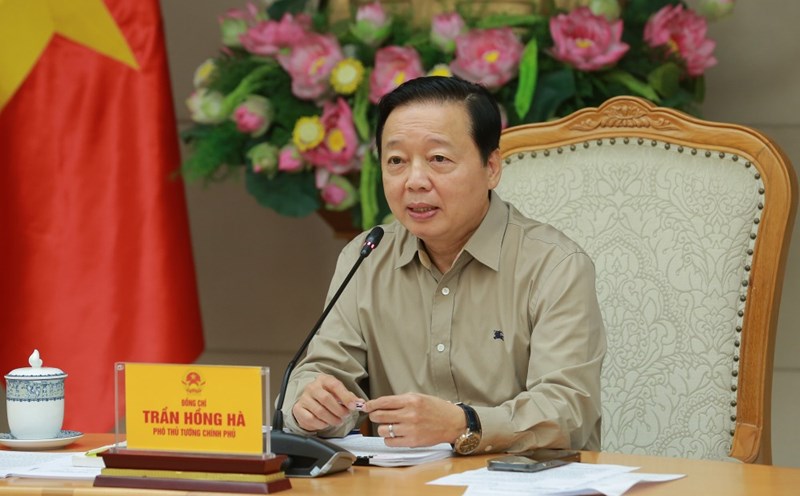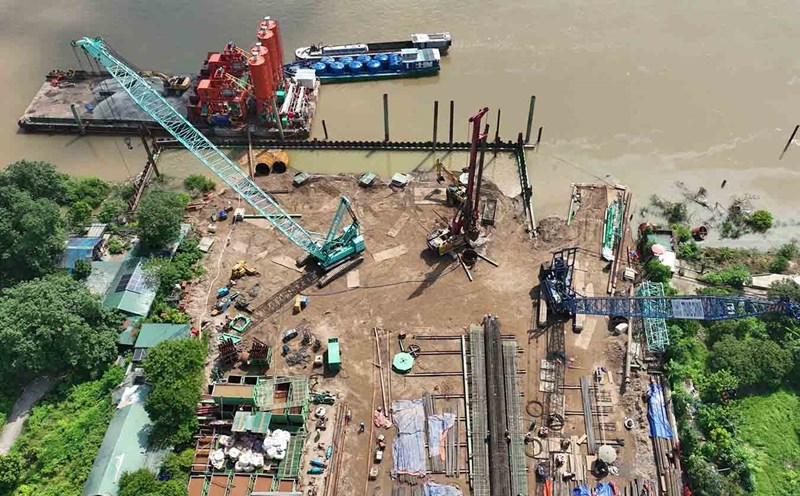On September 12, at the Government Headquarters, Deputy Prime Minister Tran Hong Ha chaired a meeting to listen to reports and give opinions on amending the Construction Law (Drafts of the Law), with the participation of many ministries, branches, localities, experts and associations in the construction industry.
The draft law cuts and simplifies administrative procedures, investment and business conditions. Investors can choose a design option depending on the nature and complexity of the project, to shorten the procedures.
The project appraisal agency only focuses on construction safety, fire prevention and fighting, compliance with standards, regulations and planning compliance; other contents are delegated to the investor; instead of two appraisal steps (basic design and after basic design), there is only one step to appraise the basic design.
Exemption from the construction permit for projects that have been assessed by a feasibility study report by a professional agency; small projects and individual houses without detailed planning still need to apply for a permit, and can be implemented online.
Review and reduce subjects for inspection of acceptance work; simplify construction start conditions.
Abolish procedures for granting certificates of construction capacity to organizations; reduce the field of practice certificate requirements.
Mr. Le Anh Quan - Vice Chairman of Hai Phong City People's Committee stated that in practice, after the merger of administrative boundaries, many projects had to stop or transfer investors, but the Draft has not clarified the settlement procedures.
Deputy Director of the Hanoi Department of Construction Luyen Van Phuong proposed reforming the construction licensing process to also receive attention under the "one-stop, one-stop" mechanism for simultaneous appraisal and time reduction.
Concluding the meeting, Deputy Prime Minister Tran Hong Ha emphasized that the Ministry of Construction must consider the amendment of the Construction Law as an urgent task, in order to institutionalize the policy of decentralization, delegation of power, arrangement of administrative units, and reorganization of local government at 2 levels.
Regarding construction licensing procedures, the Deputy Prime Minister emphasized that this is the final management tool, ensuring that the project meets planning, design, fire prevention and fighting, and the environment.
However, it is necessary to shorten the time, avoid overlap, and at the same time decentralize but still maintain national and international standards on the capacity of cadres, consulting units, supervisors, and contractors.
"We should not be afraid of the license name. The important thing is to reform processes, many procedures in one set of records, one door, and clear authority. If the feasible design documents have fully integrated these contents, the licensing will be almost just an affirmation," the Deputy Prime Minister discussed.
Pointing out the lack of standards, norms, and unit prices in the construction sector that has caused both central and local agencies to be entangled, the Deputy Prime Minister proposed opening a direction for reference, applying international standards and technology of the producing country to domestic fields that have not been issued.
This is especially important for new projects such as high-speed railways, high-speed railways, and airports.
In addition, the law needs to allow the use of foreign consulting when domestic capacity is not enough, to ensure objectivity and science. The organization of the project management board must also be flexible, avoiding the situation of "if consultants are not invited, the project will be stuck".
To ensure the rights of enterprises and encourage innovation, the Deputy Prime Minister noted that regulations on payment and settlement are still inadequate, especially for small and medium enterprises and subcontractors; study and replace the regulation on payment only after the inspection and audit conclusion is available, using a contract tying mechanism.








